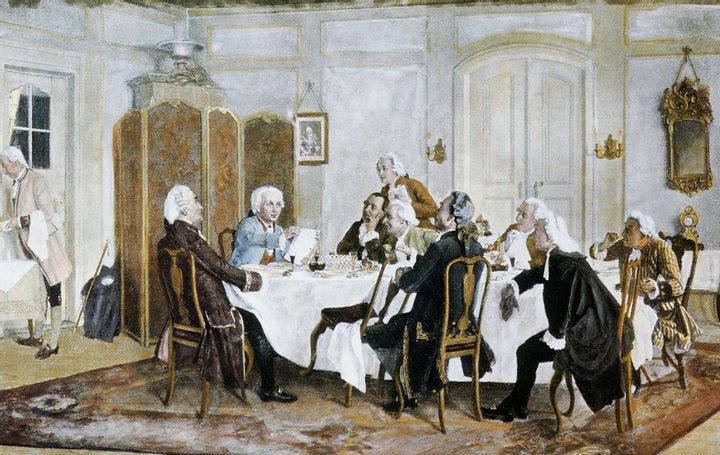Summer 2011
No Thanks, Mr. Kant
– The Wilson Quarterly
The quest for a depoliticized world is a dangerous delusion.
The dream of a world without politics lives on. It would be a world without national governments, ruled by international law. German philosopher Immanuel Kant (1724–1804), who did much to shape this ideal, believed that the application of universal moral law would create a world in which “our moral duties and obligations respect no national boundaries or other parochial attachments such as race, class, or ethnicity,” writes Yale political scientist Steven B. Smith.
Leaving aside the fact that our limited experience with international organizations does not invite confidence, Smith contends that the quest for a depoliticized world is a dangerous delusion. Such a quest would seek to strip the world and its people of the particular—local traditions, habits, and proclivities—in the name of an abstract cosmopolitan ideal.
Smith allows that all these things—which are what make humans political beings—do have a dark side. But the cost of Kant’s world without politics would be too high. It would be as if everyone were asked to give up their native tongues and speak only Esperanto. The gain in increased communication would be outweighed by the losses. Who, Smith asks, “is the Shakespeare of Esperanto?”
A world without local culture and traditions “can lead only to moral decay, an inability or unwillingness to dedicate one’s life to ideals, to the relatively few things that matter and that give life wholeness and meaning,” Smith writes. “The cosmopolitan state would be a world where nothing really matters, where there is nothing left worth fighting for—a world of entertainments, of fun, of shopping, a world void of moral seriousness.” Even Kant said such a world state would be a “soulless despotism,” but it would be at peace.
Smith blames political thinkers, especially political scientists, for the prevalence of the cosmopolitan ideal. Instead of teaching and studying the all-important quality of political judgment, they have applied empirical scrutiny to every aspect of political life, squeezing all the soul out of it. The discipline is in thrall to “‘game theory,’ which regards politics merely as a marketplace in which individual preferences are formed and utilities maximized.”
Smith thinks this is a terrible mistake. “The purpose of political science is not to stand above or outside the political community as an entomologist observing ant behavior, but to serve as a civic-minded guardian of disputes in order to restore peace and stability to conflict-ridden situations.”
In the absence of a political education in the classroom, Smith recommends picking up some old books, from Aristotle’s Politics and The Federalist to the works of fine psychological novelists such as Jane Austen, Henry James, and Leo Tolstoy. They will do a politically minded person far more good than any of the mathematical peregrinations of today’s political scientists, he says.
THE SOURCE: “In Defense of Politics” by Steven B. Smith, in National Affairs, Spring 2011.
Image courtesy of Wikimedia Commons
